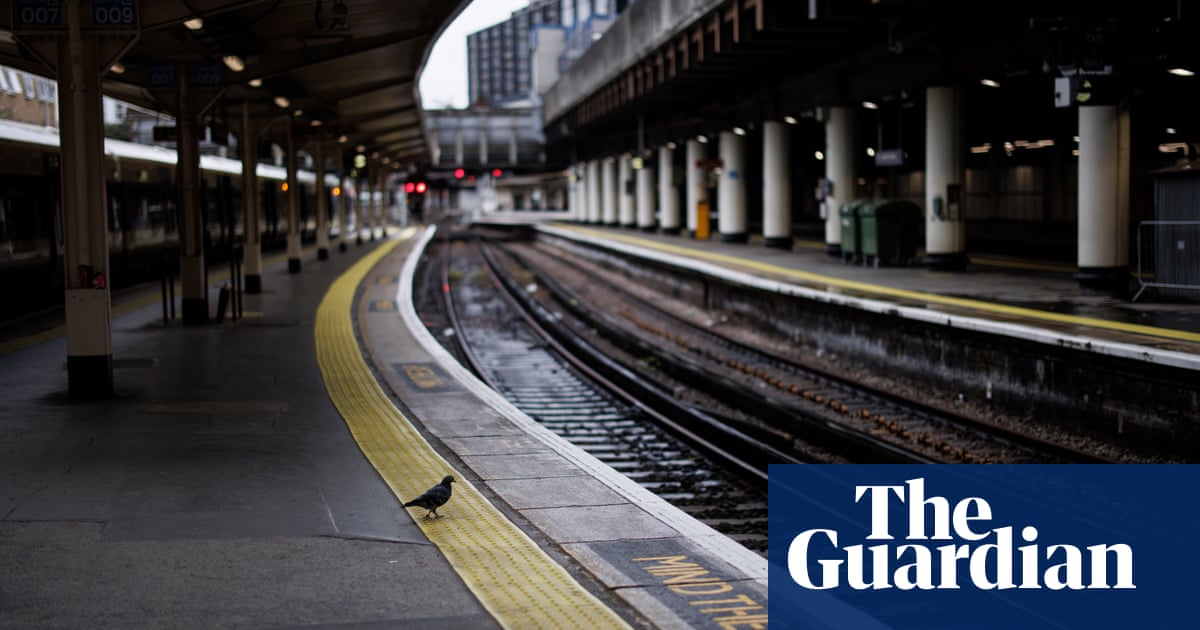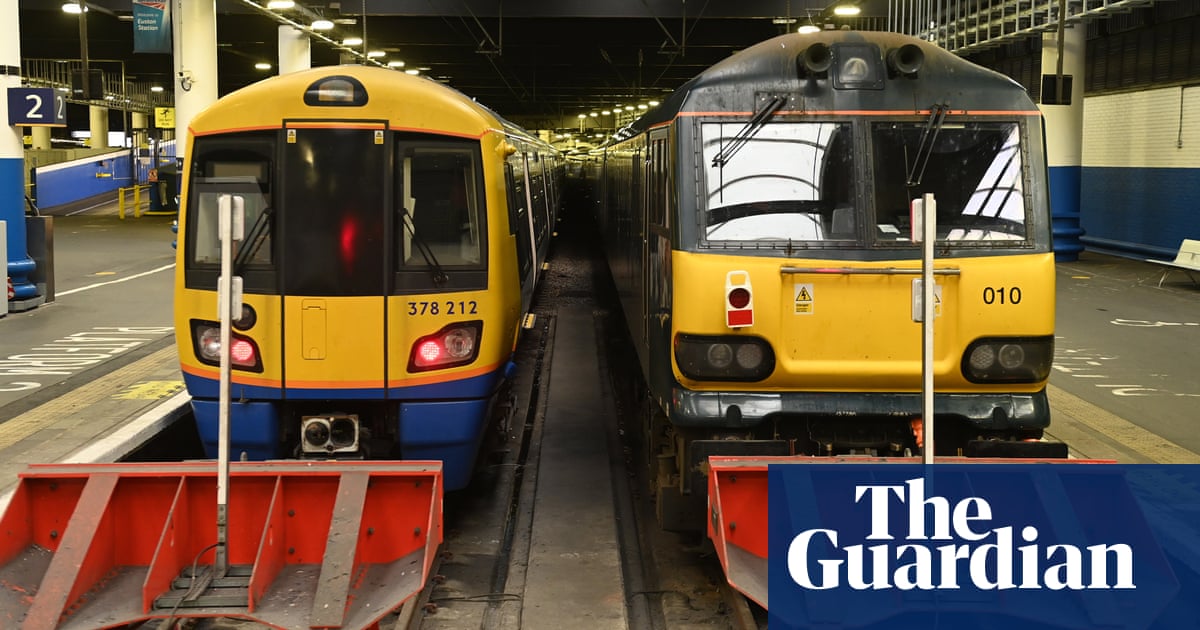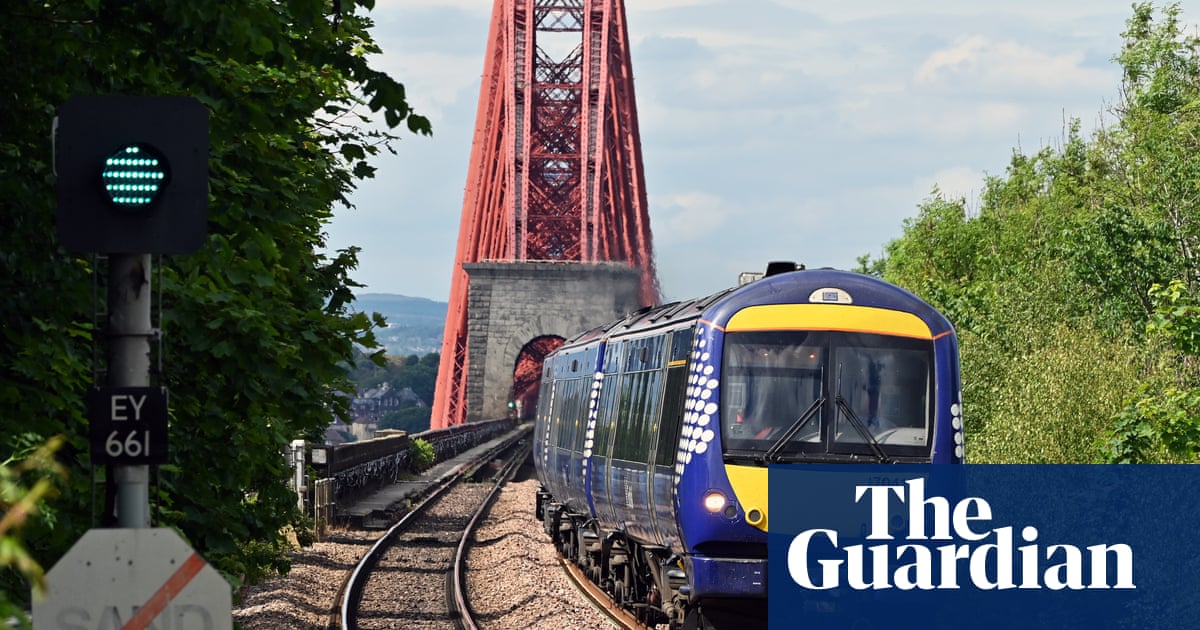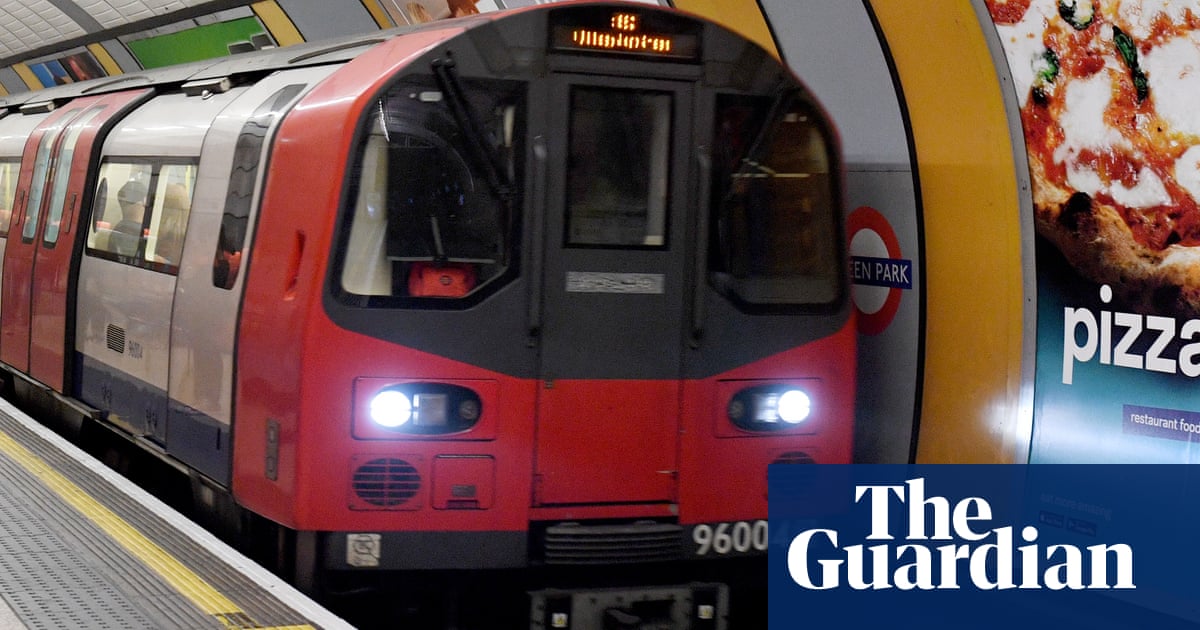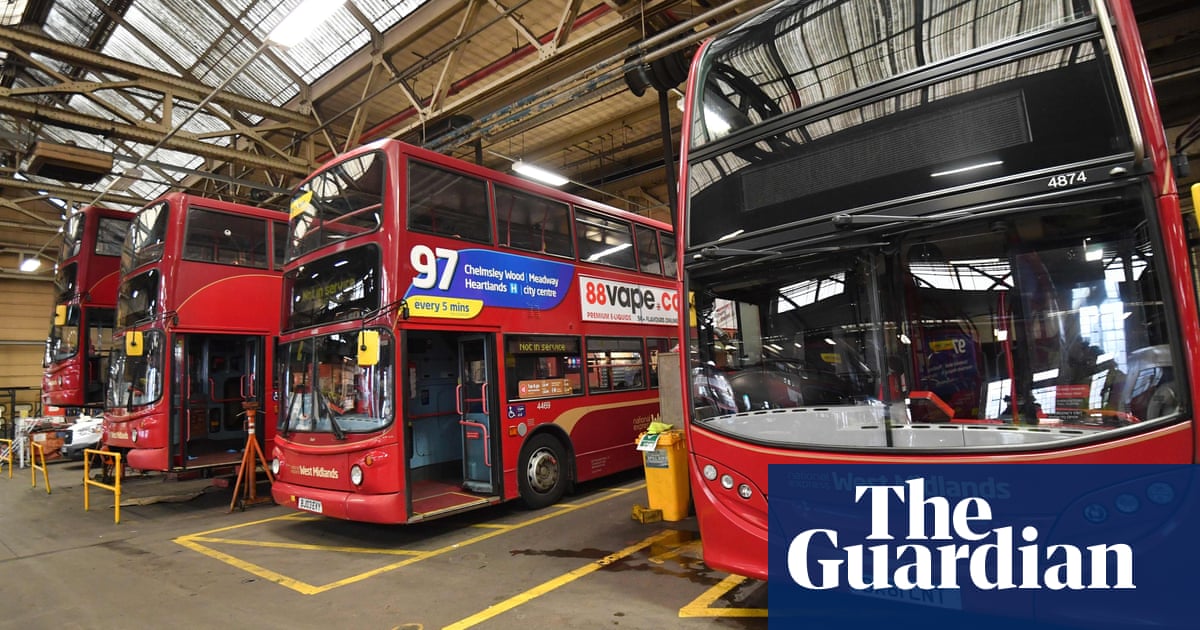
Train drivers will go on strike again next month in an escalation of the long-running dispute over pay and conditions on the railway, with a 24-hour strike at 12 companies that will stop many services across Great Britain.
The action by the Aslef union on 15 September will bring to a standstill the main intercity routes from London to the Midlands, the of north England, and Scotland and Wales, as well as commuter services in the south-east, Midlands and north, and the London Overground.
Aslef said it regretted disrupting passengers but drivers could not accept a further pay freeze, after no increase in salary since 2019.
Drivers at three more train companies – Chiltern Railways, Northern and TransPennine Express – have joined the strike, after ballots were rerun because of technicalities. After two coordinated strikes by Aslef in July and August, the stoppage in September is likely to be its most disruptive to date.
The other affected services will be Avanti West Coast, CrossCountry, Greater Anglia, Great Western Railway, Hull Trains, LNER, London Overground and Southeastern, and West Midlands Trains.
Mick Whelan, the general secretary of Aslef, said: “We regret that, once again, passengers are going to be inconvenienced. We don’t want to go on strike – withdrawing our labour, although a fundamental human right, is always a last resort for a trade union – but the train companies have forced our hand.”
With inflation now in double figures, Whelan said, “They want train drivers to take a real terms pay cut - to work just as hard this year as last, but for 10% less.
“We want the companies – which are making big profits, and paying their chief executives enormous salaries and bonuses – to make a proper pay offer to help our members keep up with the increase in the cost of living.”
Earlier, the Transport Salaried Staffs’ Association announced that thousands of its members working for Network Rail and nine train companies would strike from midday on Monday 26 September until noon the following day.
The TSSA leadership said it would be “looking for support” from Labour MPs on the picket line, with the strike timed to coincide with the party’s autumn conference in Liverpool.
Manuel Cortes, the union’s general secretary, said he would be standing on the picket line in Liverpool and “encouraging fellow delegates and Labour MPs to do likewise, so they can rightly show they stand shoulder to shoulder with those fighting the Tories’ cost of living crisis”.
Most of the TSSA train staff are in roles that would not stop services. Network Rail sources said they were confident that significant disruption would not occur unless other unions joined the strike.
However, the larger National Union of Rail, Maritime and Transport Workers is likely to call further rail strike dates in the coming weeks and could coordinate action. About 2,500 TSSA members, including rail traffic controllers, went on strike on 18 and 20 August, the same days as RMT members, leading to a substantial reduction in rail services.
A spokesperson for the Department for Transport said union leaders were again “choosing self-defeating strike action over constructive talks, not only disrupting the lives of millions who rely on these services but jeopardising the future of the railways and their own members’ livelihoods.
“These reforms deliver the modernisations our rail network urgently needs, are essential to the future of rail, and will happen. Strikes will not change this.”
The RMT has signalled further tube strikes are likely to take place after a funding deal with the government announced on Tuesday left Transport for London pensions facing a possible overhaul. Mick Lynch, the RMT general secretary, said it the deal was “shameful” and would be “resisted through further strike action”.
Labour attacked the government’s “staggering complacency” over the crisis in the railways, with the country’s main intercity rail service, Avanti west coast, continuing to run a reduced service between strikes. About a third of the scheduled trains have been cancelled owing to a lack of drivers volunteering to work on rest days, which the firm has described as “unofficial strike action”.
The firm was running an estimated 211,000 fewer seats a week, leaving passengers facing crowded services, Labour said. Louise Haigh, the shadow transport secretary, said: “This fiasco is causing real damage to the regional economy and passengers. The secretary of state has shown staggering complacency, refusing to lift a finger to tackle the chaos.”
Ministers should “strip this failing operator of the contract, claw back taxpayers’ money being handed over for services that aren’t running, and put in place an urgent plan to restore these services”, she added.




